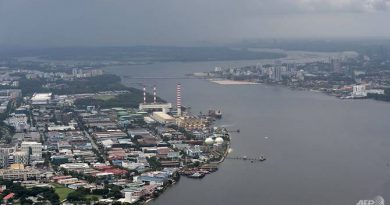Govt to balance healthcare, economic wellbeing
ZyTkfNiXPUTRAJAYA: The newly-announced Pakej Perlindungan Rakyat dan Pemulihan Ekonomi (Pemulih) reflects the government’s commitment to curb the spread of Covid-19 while ensuring the sustainability of the economy and the people.
Senior International Trade and Industry Minister Datuk Seri Azmin Ali said Pemulih was also proof that the Perikatan Nasional administration would spare no effort to strike a balance between protecting the public healthcare system and the wellbeing of the economy.
He said under Pemulih, which was the eighth financial assistance package rolled out by the government since the pandemic hit the country, the government had set aside RM150 million to enhance the implementation of the Public-Private Partnership Covid-19 Industry Immunisation Programme (Pikas).
“This is a clear commitment that the government is serious in supporting Pikas to get more of the nation’s workforce vaccinated as they are the backbone of our economy,” said Azmin.
Prime Minister Tan Sri Muhyiddin Yassin on Monday unveiled Pemulih, a RM150 billion stimulus package which aims to provide comprehensive aid to the people via three main focuses, namely continuing the Prihatin Rakyat agenda, supporting businesses and increasing the vaccination rate.
Azmin said the implementation of the Movement Control Order, which came into force on June 1, had affected the country’s economic performance.
He said the RM380 billion introduced in previous stimulus packages had nevertheless helped to mitigate the pandemic’s impact.
“For the first time in the country’s history, its export value hit RM100 billion for two consecutive months in March and April.
“This means that external demand for our products continues to increase and that local companies need to boost their production to meet such demands.
“This also means that local products are competitive and meet international standards.”
Azmin said the country could no longer afford to implement another round of full lockdown similar to the ones implemented since March 18 last year.
“Of course, the measures helped to immediately reduce the number of Covid-19 cases in the country. At the same time, the economic impact was significant, with the country losing up to RM2.4 billion a day over three months.
“Malaysia’s gross domestic product contracted 17.1 per cent year-on-year in the second quarter of 2020, and our unemployment rate increased to 5.3 per cent, leaving 826,000 people jobless.
“Last year, we could afford (to implement such measures) since the country had significant funds and the people still had savings in their Employees Provident Fund.
“But this year, we can no longer use the same approach.”
Source: NST




